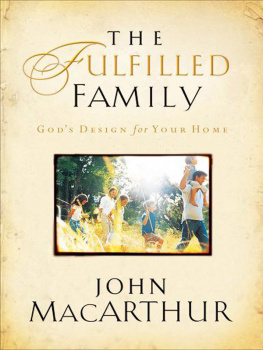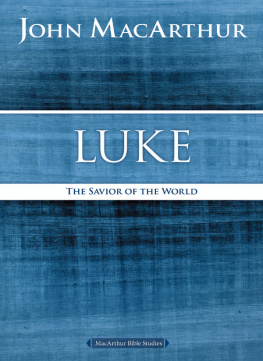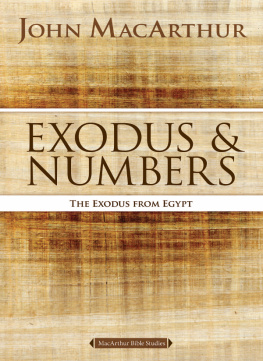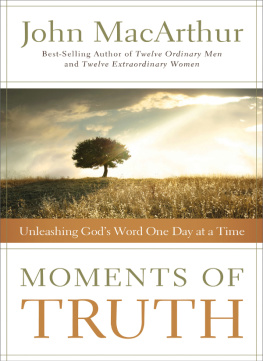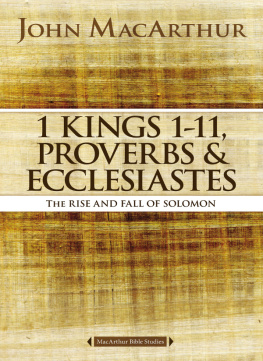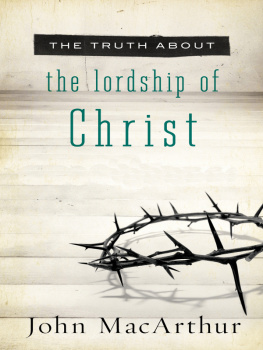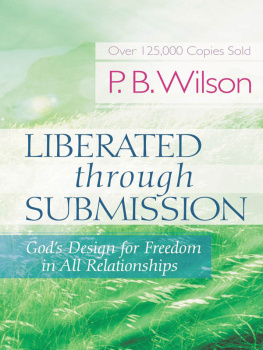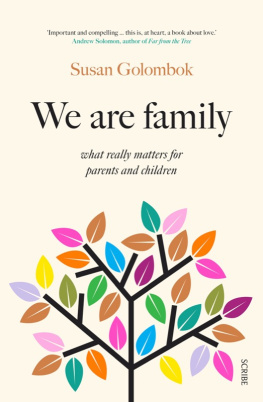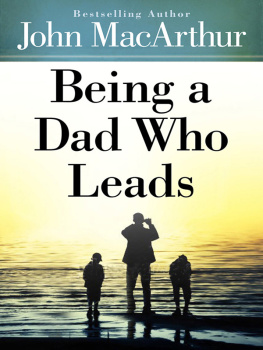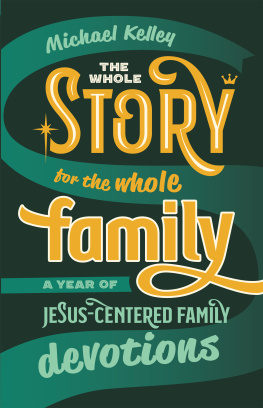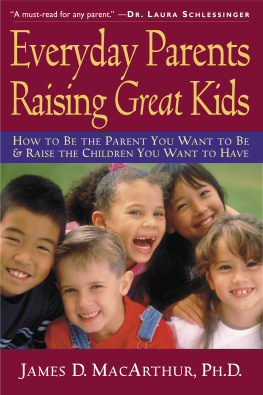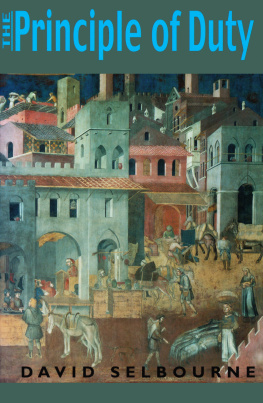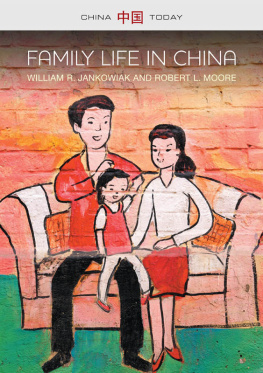
OTHER BOOKS BY JOHN MACARTHUR
The Book on Leadership
Hard to Believe
Welcome to the Family
Twelve Ordinary Men
The Murder of Jesus
The MacArthur Study Bible
and many more

2005 by John MacArthur
All rights reserved. No portion of this book may be reproduced, stored in a retrieval system, or transmitted in any form or by any meanselectronic, mechanical, photocopy, recording, scanning, or otherexcept for brief quotations in critical reviews or articles, without the prior written permission of the publisher.
Published in Nashville, Tennessee, by Thomas Nelson. Thomas Nelson is a registered trademark of Thomas Nelson, Inc.
Thomas Nelson, Inc. titles may be purchased in bulk for educational, business, fund-raising, or sales promotional use. For information, please e-mail SpecialMarkets@ThomasNelson.com.
Published in association with the literary agency of Wolgemuth & Associates, Inc.
Unless otherwise indicated, Scripture is taken from The New King James Version. 1979, 1980, 1982 by Thomas Nelson, Inc. Used by permission. All rights reserved.
Scriptures marked KJV are from the King James Version of the Bible.
Edited by Phillip R. Johnson
Library of Congress Cataloging-in-Publication Data
MacArthur, John, 1939
The fulfilled family : Gods design for your family / John MacArthur.
p. cm.
Includes bibliographical references.
ISBN 978-0-7852-6254-1 (hardcover)
ISBN 978-1-400280-445 (trade paper)
1.MarriageBiblical teaching. 2. FamilyBiblical teaching. 3. Bible. N.T.
Ephesians V, 21VI, 4Criticism, interpretation, etc. I. Title.
BS2655.M34M34 2005
248.4dc22
2005008268
Printed in the United States of America
08 09 10 11 12 LSI 5 4 3 2 1
To my own dear family,
especially my beloved Patricia.
Her worth is far above rubies.
(PROVERBS 31:10)
Contents
1. The First Principle for Family Harmony:
Mutual Submission
2. The Wifes Role:
Submission, Not Slavery
3. The Husbands Duty:
Love
4. The Childrens Duty:
Obedience
5. The Parents Duty:
Nurture and Admonition

I have been speaking and writing about Gods design for the family since the earliest days of my ministry. A series of sermons I preached many years ago on Ephesians 56, carefully examining what Scripture teaches about the roles of parents and children, has for three decades stood alone as the single best-selling set of tapes and CDs our ministry has ever produced. I first published a book on the family more than two decades ago.Over the years weve published several other study guides and parenting manuals to provide practical help on family issues. Parents have devoured those resources and asked for more.
Meanwhile, in the church I have pastored for more than thirty-five years, people who were just entering the youth group when I arrived are now becoming grandparents. They, like their own parents and grandparents, want to see each successive generation of their families resist the powerful cultural trends that are steadily eroding what remains of our societys commitment to the family. And so I have been prevailed upon to address the issue of the family from a biblical perspective in writing yet againthis time in a simple handbook that distills the heart of what Scripture teaches about this most essential of all earthly institutions.
According to the Bible, God Himself ordained the family as the basic building block of human society, because He deemed it not good that man should be alone (Gen. 2:18). That verse stands out starkly in the biblical Creation narrative, because as Scripture describes the successive days of the Creation week, the text punctuates each stage of Creation with the words God saw that it was good (Gen. 1:4, 10, 12, 18, 21, 25, italics added). The goodness of creation emerges as the main theme of Genesis 1, and the statement God saw that it was good is repeated again and again, like the refrain after each stanza of a lengthy song. Then finally, after the sixth day of Creation, were told with emphasis, God saw everything that He had made, and indeed it was very good (v. 31, italics added).
But then Genesis 2:18 takes us back to the end of day six and reveals that just before God ended His creative work, just one thing was left that was not good. Every aspect of the entire universe was finished. Each galaxy, star, planet, rock, grain of sand, and tiny molecule was in place. God had created all the species of living things. Adam had already given names to all cattle, to the birds of the air, and to every beast of the field (v. 20). But one glaring unfinished aspect of Creation remained: For Adam there was not found a helper comparable to him (v. 20). Adam was alone, and in need of a suitable mate. Therefore Gods final act of creation on day sixthe crowning step that made everything in the universe perfectHe accomplished by forming Eve from Adams rib. Then He brought her to the man (v. 22).
By that act, God established the family for all time. The Genesis narrative says,Therefore a man shall leave his father and mother and be joined to his wife, and they shall become one flesh (v. 24). Jesus quoted that verse in Matthew 19:5 to underscore the sanctity and permanence of marriage as an institution. A minister quotes that same verse practically every time he unites two believers in a Christian marriage ceremony. It is a reminder that God ordained marriage and the family, and therefore they are sacred in His sight.
So it is no mere accident of history that family relationships have always been the very nucleus of all human civilization. According to Scripture, that is precisely the way God designed it to be.And therefore, if the family crumbles as an institution, all of civilization will ultimately crumble along with it.
Over the past few generations, we have seen that destructive process taking place before our eyes. It seems contemporary secular society has declared war on the family. Casual sex is expected. Divorce is epidemic. Marriage itself is in decline, as multitudes of men and women have decided its preferable to live together without making a covenant or formally constituting a family. Abortion is a worldwide plague. Juvenile delinquency is rampant, and many parents have deliberately abandoned their roles of authority in the family. On the other hand, child abuse in many forms is escalating. Modern and postmodern philosophies have attacked the traditional roles of men and women within the family. Special-interest groups and even government agencies seem bent on the dissolution of the traditional family, advocating the normalization of homosexuality, same-sex marriage, and (in some cultures nowadays) sterilization programs. Divorce has been made easy, tax laws penalize marriage, and government welfare rewards childbirth outside of wedlock. All those trends (and many more like them) are direct attacks on the sanctity of the family.
These days, whenever families are portrayed in films, television dramas, or sitcoms, they are almost always caricatured as grossly dysfunctional. Someone recently pointed out that the only television family who regularly attend church together are the Simpsonsand they are cartoon exaggerations deliberately saddled with the worst imaginable traits, designed mainly to mock and malign both church and family. Its no joke, though. A relentless parade of similarly dysfunctional assortments of people assaults us on television and in the movies. Hollywood has given a broad new meaning to the word
Next page
